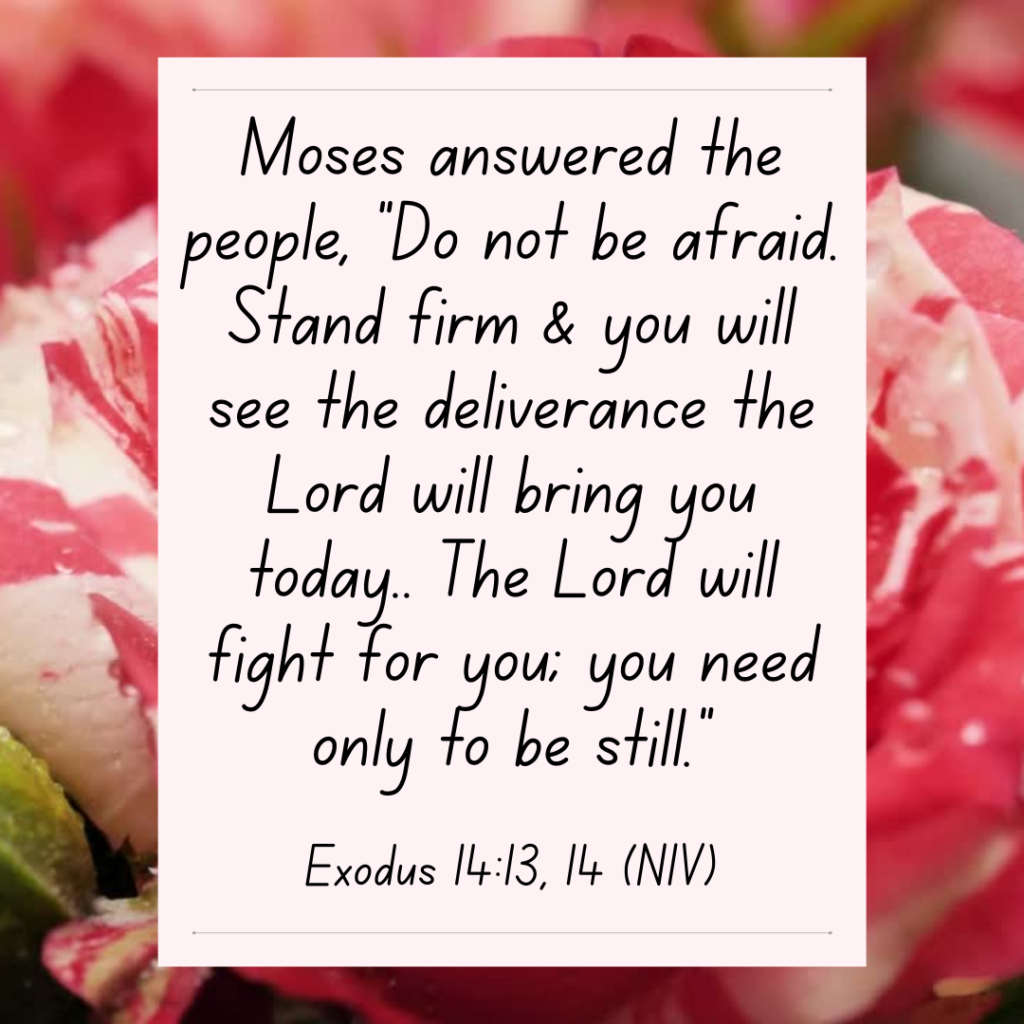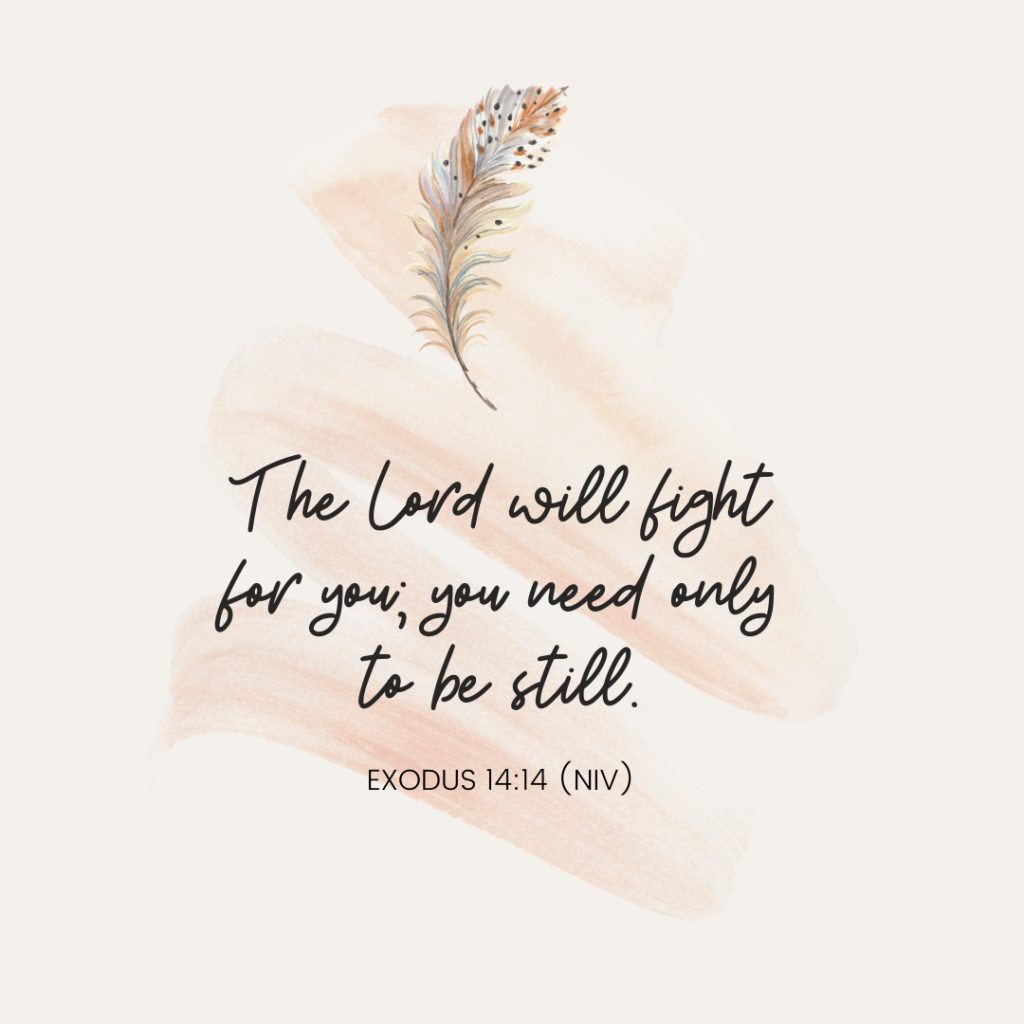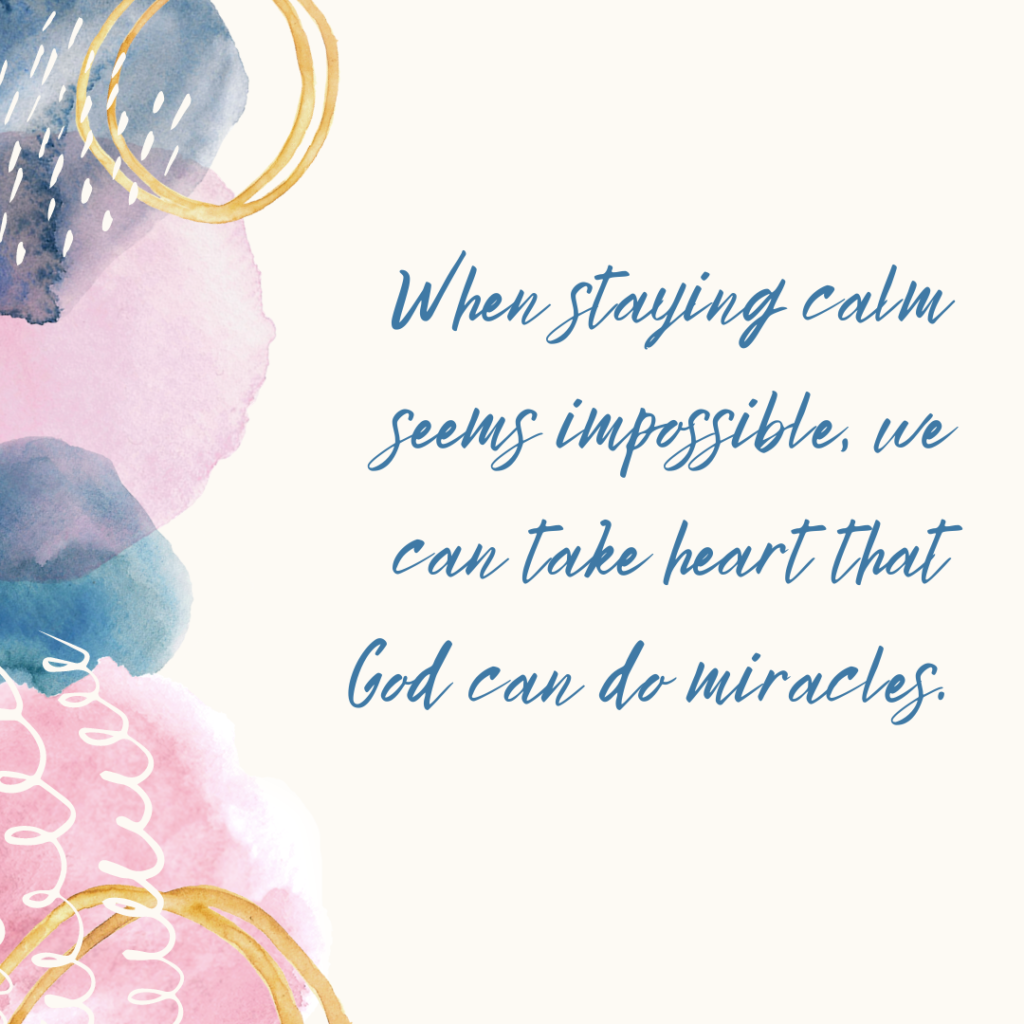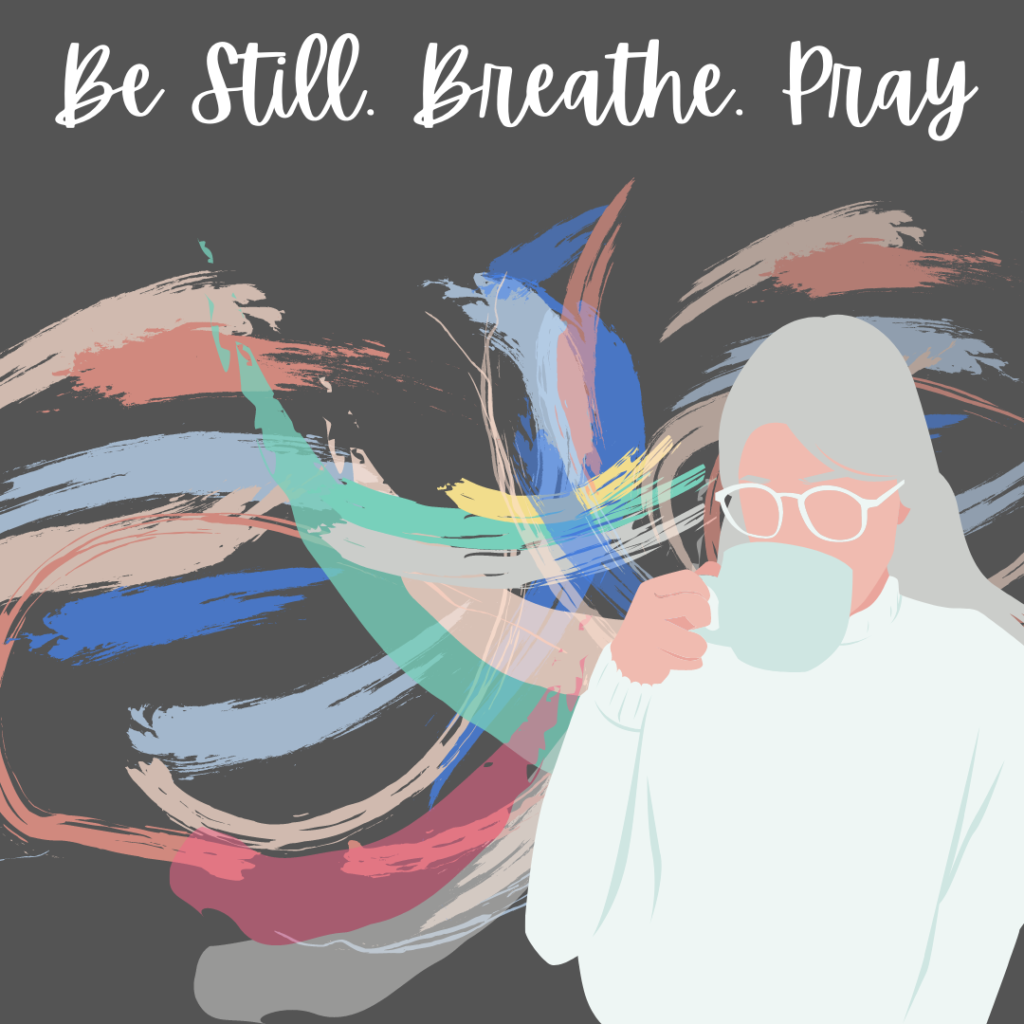It would be wonderful if nothing goes wrong, especially when we embark on something new. Not very plausible, is it?
Things go wrong all the time, and if we’re starting a new journey, all the more likely (since it is new to us!). Our reactions may include:
- Regret – Why did I do it?
- Blame – Why didn’t you stop me/ help me earlier? And don’t say I told you so!
- Fear – What will happen to me?
- Despair – It is over.
This was what happened to the Israelites after the Exodus. Pharaoh and his servants were upset that they had released the Israelites, and sent 600 chariots to pursue them. When the Israelites were trapped as there was nowhere to run but to cross the Red Sea, their reactions were fear, followed by crying out to the Lord (Exodus 14:10). Then they blamed Moses and rebuked him for leading them out of Egypt to die (Exodus 14:11-12).
Is not this the word that we did tell thee in Egypt, saying, Let us alone, that we may serve the Egyptians? For it had been better for us to serve the Egyptians, than that we should die in the wilderness.
Exodus 14:12 (KJV)

Funny how our brain seemed to distort the past, especially when things went wrong. Life in Egypt was unbearable and it was God (not Moses per se) who led them to leave Egypt, with a mighty show of the ten plagues. Moses, on the other hand, had matured much (since Exodus 3) and reassured the Israelites that God would do something (even though he had no idea what the game plan was).
13Moses answered the people, “Do not be afraid. Stand firm and you will see the deliverance the Lord will bring you today. The Egyptians you see today you will never see again. 14 The Lord will fight for you; you need only to be still.”
Exodus 14:13-14 (NIV)
Standing still when things go wrong
- Staying calm


To be still requires staying calm. No panic running away, no toxic talk, no jumping from the frying pan to the fire, no collapsing from despair. Before we think too little of the Israelites, we have to put ourselves in their shoes – chariots were like formula one cars, and there were 600 coming at them. They were possibly tired, with children and elderly, and luggage. And the sea in front of them, with nowhere to turn.
When staying calm seems impossible, we can take heart that God can do miracles.
Moving forward
Lest we think that standing still means doing nothing, the Israelites were commanded to move forward.
Then the Lord said to Moses, “Why are you crying out to me? Tell the Israelites to move on.
Exodus 14:15 (NIV)
God parted the Red Sea and the Egyptians, in pursuit, ended up drowning. Why not just throw fire and sulfur onto the Egyptians (like for Sodom)? Why must God require the Israelites to cross the Red Sea? Here’s the verse at the end of Exodus 14 that may give us a clue:
And when the Israelites saw the mighty hand of the Lord displayed against the Egyptians, the people feared the Lord and put their trust in him and in Moses his servant.
Exodus 14:31 (NIV)
Faith journeys are not for showing how powerful God is, but for helping us trust God. Our relationship with God isn’t mysterious; conversely, it is simple. When life is good, do we care for God? When life is bad, do we trust God?
Staying Calm

Exodus 14 Journaling Prompt
Were there times in your life when you needed to trust God?
What are your reflex responses when things go wrong?
God, I know I have difficulty trusting that you would come through. I tend to try everything, except turning to You. I pray, but maybe I’m doing it wrong because nothing seems to happen. Help to grow my faith Lord!
Books on Staying Calm and Trusting God
I get commissions for purchases made through links in this post.
I included the book by the creator of meditation app Calm – deep breaths are helpful!



